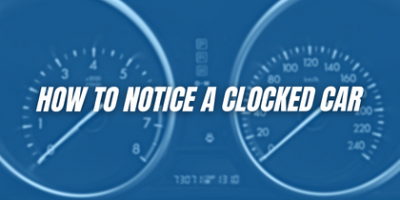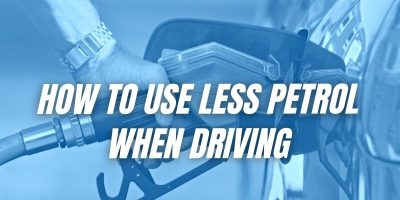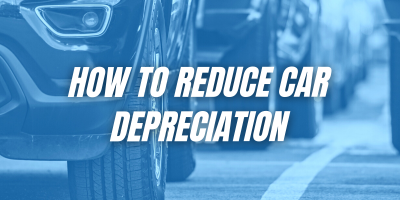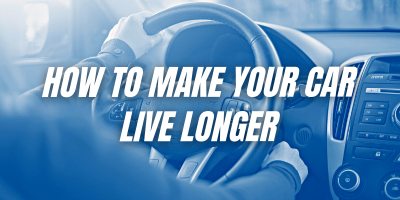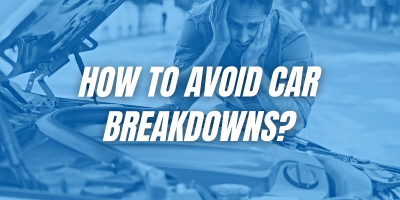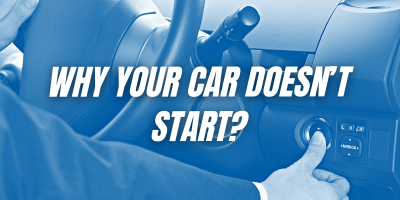CHRISTMAS AND NEW YEAR OPENING TIMES
lmageneral2022-07-25T09:45:20+00:00We are fast approaching that time of year again, and we want to give you enough notice about our Festive Opening Times.
Tuesday 21st of December @ 6:30pm will be our last auction of 2021!
Tuesday 21st December 9:00 am – 8:00 pm
Wednesday 22nd December 9:00 am – 5:00 pm
Thursday 23rd December 9:00 am – 6:00 pm
Friday, 24th December to Monday, 3rd January – CLOSED
Tuesday, 4th January – 9:00 am – 8:00 pm
Our offices re-open on Tuesday 4th of January 2022 at 9:00 am and resume to normal opening times.
The first auction of 2022 will be Tuesday 4th of January @ 6:30 pm.
Although our team is taking a few days’ well-deserved rest during this festive period, if you need us, please email info@lmauctions.co.uk and we will respond at the earliest opportunity.
Merry Christmas and a Happy New Year from all of us at Letchworth Motor Auctions!
[contact-form-7 id=”37952″ /]
How to notice a clocked car
lmageneral2022-07-25T09:46:04+00:00How to notice a clocked car when looking for a new vehicle
A ‘clocked car’ is when a car’s recorded mileage is lowered which makes it look fresher and more attractive to prospective buyers. Luckily, there are a few ways to ensure you can buy a car that hasn’t been tampered with.
Check the car’s service history
The vehicle’s mileage should have been documented at every servicing – normally every 12 months or 12,000 miles. This gives you a decent idea of how far it’s travelled. Calling the previous owner to verify the mileage when they sold is also useful because a dishonest seller may have acquired a new service book or doctored the current one.
Trust your instinct
When buying a car, you must also trust your judgement, since gut feelings and data gathered with your own eyes can assist you in making a judgment. If you see anything that isn’t in keeping with the vehicle’s overall condition — for example, an excessively worn interior with just 40,000 miles on the clock – you should be concerned.
Check electrical systems
Although electronic odometers can make it difficult to notice clocking, electrical anomalies can still pop up, such as a malfunctioning trip computer. Basic electrical glitches and malfunctions will show if the electrical system has been tampered with.
Check the mileage at every viewing
Dodgy sellers will turn back the total mileage in the first viewing so that they lure potential buyers into a car that seems to have low mileage, only to reset the clock on a second viewing, or after a purchase, to ensure everything looks legal again.
Get a vehicle check
You can access a database of 135 million mileages for a low fee which verifys a vehicle’s history. The car you’re looking at will most likely be in this database.
Want a reliable place to buy your next car?
Not to worry, you can buy used cars at our auction, where you don’t need to worry about clocked mileages. It’s easy to sign up and bidding can be done completely online. You’ll have to pick up the car in person, though.
How to use less petrol when driving
shelley2022-07-25T09:47:23+00:00How to use less petrol when driving
Autumn 2021 saw a fuel shortage across the country with long queues and chaos on UK roads. Using less petrol will help you save money as well as the panic of needing to find petrol stations with fuel. Below are tips on how to save petrol when driving around.
Keep it slow and steady
The engine’s fuel consumption may be reduced by keeping your speed slow and steady. It should also mean less braking, allowing your tank to stay fuller for longer.
Drive on shorter routes
Prepare ahead of time by determining the shortest route to your destination. It’s also worth looking for a route that avoids motorways whenever possible. This will assist in making your travel as economical as possible.
Keep your car weight light
Carry as little weight as possible in the vehicle. It doesn’t take much more weight to impose a strain on a car, which results in increased fuel usage.
Turn off the air-con and close the windows
Using air conditioning while driving increases a vehicle’s fuel usage. Furthermore, having the windows open causes drag in the car, which causes your tank to deplete considerably faster.
Combine multiple short trips
While you should only drive if absolutely necessary, if you can, combine numerous small trips into one larger trip. If you only drive once, you’ll need less fuel to warm up the engine.
Check tyre pressure and oil level
Keeping your tyres at the proper pressure helps them to run as efficiently as possible. While it may be difficult to fill them up at a petrol station right now, doing it at home will be extremely beneficial. Check your oil level to make sure it’s where it should be. Check the sort of oil you’re using if you need to top up; some oils can help your engine run more effectively.
Turn off the engine
If you’re delayed in heavy traffic or waiting for passengers and it’s safe to do so, turn off your car’s engine to save fuel.
Need to replace your car?
Not to worry, replace your car with one of our used cars at auction. It’s easy to sign up and bidding can be done completely online. You’ll have to pick up the car in person, though
How to reduce car depreciation
shelley2021-10-27T08:39:27+00:00How to reduce car depreciation
In the first three years of ownership, most vehicles lose between 50% and 60% of their value. The rate of depreciation is influenced by a number of factors such as running costs and the quality of the car.
What is car depreciation?
Depreciation is the gap between the price you paid for your vehicle and the price you receive when you sell or trade it in.
The first year of ownership is when most vehicles suffer the largest hit in terms of depreciation, and it progressively slows down after that. When you’re in your eighth year of ownership, depreciation usually comes to a halt. In the long run, selecting a car that depreciates slowly will save you more money.
Running costs affect depreciation
The fuel economy has a significant impact on depreciation, particularly since that petrol and diesel engines are becoming more costly year on year. Large vehicles, predictably, take the worst of the damage.
On the used market, big petrol-engined saloons might appear to be a great value, but only if you can pay the running costs. Smaller automobiles, such as tiny cars and city cars, are quite popular in the UK since their running expenses are significantly lower.
Car quality affects depreciation
It’s simple to find out how many warranty claims or recalls a vehicle has prompted, as well as what owners have said about dealers’ ability to resolve issues. All of this information, both positive and bad, will have an impact on the depreciation of a car model.
Reducing car depreciation
Once you understand the causes of car depreciation, you can begin to find ways to reduce the effects of car depreciation when you buy a car.
One way is to pick a popular car with minimal operating expenses, such as a city car or a supermini. They won’t suit everyone, so purchasers should consider other options to avoid falling residual values.
Keeping a detailed record of service and MOT certifications, maintaining a low mileage and keeping the vehicle in excellent condition will help prevent depreciation.
Buy your car for less to reduce depreciation
To avoid rapid depreciation, you can replace your car with one of our used cars at auction. It’s easy to sign up, and bidding can all be done online. You’ll have to pick up the car in person though!
How to tow a car
shelley2021-10-12T14:51:16+00:00How to tow a car
When your car has broken down, it’s good to know how to tow a car safely and legally. Knowing how to tow a car is essential for all motorists whether helping yourself or other people. Find out the tips and rules below.
Rules for towing
Whether you’re being towed or towing a broken down car, both parties must remember these important rules:
- A qualified driver must be in the vehicle that has broken down.
- You must place an ‘On Tow’ sign at the back of the towed vehicle.
- If it’s night-time, the broken down vehicle’s lights must be turned on, just as they would under regular conditions.
- If the two vehicles are connected only by a rope or chain, the maximum distance allowed between the vehicles is 4.5 metres.
- If the distance between the two vehicles is more than 1.5 metres, the rope or chain must be clearly visible within a reasonable distance from either side to other road users by attaching a colourful flatting fabric in the centre.
Tips for towing driver
For the towing driver, you must never exceed 15 mph. To avoid tugging on the tow line abruptly, which can cause it to break, use the clutch to slowly draw away and avoid any sudden braking. The towed driver may not respond quickly enough to stop so tap gently to alert the driver.
Indicate in plenty of time and prevent any sudden change of direction or excessive movements because the driver being pulled will find it difficult to steer and brake with you.
While towing, check your mirrors frequently to ensure everything appears to be okay. Keep a watch on your vehicle’s gauges, especially the temperature and oil pressure. If these abruptly change, there might be an issue so pull over as quickly as possible.
Tips for driver being towed
Before setting off, release the steering lock by making sure the ignition switch is ‘on’ to make it easier to steer the broken down vehicle.
Actively match the steering and braking with the towing vehicles at all times and keep some tension in the towrope or towing pole by applying light braking pressure to avoid jolting.
Maintain the same level of alertness as if you were driving, paying special attention to the towing car’s brake lights and indicators to get as much warning of what’s coming up.
Tired of your car breaking down?
Not to worry, replace your car with one of our used cars at auction. It’s easy to sign up and bidding can be done completely online. You’ll have to pick up the car in person, though
How to make your car live longer
lmageneral2021-10-27T08:35:59+00:00How to make your car live longer
We all want our cars to last as long as they can but sometimes their lifetime gets cut short. The average age of a scrapped vehicle is about 14 years, but the average age of on-the-road cars is closer to 8 years. So, below are a list of tips to help lower your running costs and keep your car on the road for many years.
Maintain the car’s battery
When you don’t drive your car for a long time, the battery deteriorates and goes flat. If your car is kept in a garage for an extended length of time, try using a trickle charger to keep the battery charged or a battery conditioner if it seems to be holding less charge than usual. If your battery does run flat, jump-starting your car puts excessive pressure on it and may harm the engine management system and other sensitive components, resulting in increased damage. You should aim to drive your car at least once a week, especially in the winter if you don’t have access to a trickle charger.
Change filters frequently
The oil filter and air filter in your car become clogged over time, so it’s critical to replace them on a regular basis. They should be replaced as part of a routine service, but because both are reasonably straightforward procedures, especially replacing the air filter, you might as well try it yourself and save money. It’s also possible to extend the life of the air filter by cleaning it. Cleaning and changing filters should be done according to the instructions in the car’s manual, and authentic parts should be used. Cheap, low-quality filters may cause long-term harm to your engine.
Use air conditioning regularly
Air conditioners lose refrigerant gas over time, especially if they aren’t utilised on a regular basis. You may save money by turning off your air conditioner, but you may wind up with a charge for air conditioning re-gassing instead. So it’s best to keep using your air conditioner regularly. This also means letting your vents blow cold occasionally in the winter too.
Is your car reaching the end of the road?
Not to worry, simply check out one of our used cars at auction. It’s easy to sign up, and bidding can all be done online. You’ll have to pick up the car in person though! Any other questions, get in contact with us.
How to avoid car breakdowns
lmageneral2021-09-22T09:27:06+00:00How to avoid car breakdowns
It can be frustrating and costly when your car constantly breaks down. Oftentimes, breakdowns happen because of simple maintenance issues which could easily be avoided. Read the tips below to avoid future car breakdowns.
Flat car battery
If you have issues with starting your car, there may be a problem with the car battery. A car’s battery powers the starter motor, which then starts the engine and turns the alternator, which recharges the battery. Reasons car batteries go flat:
● A faulty component
● A fault with the battery
● An issue with the car’s charging system
● Using your car only for short journeys
● Leaving your car unused for a long time
● Old age Most car batteries have a guarantee of 3 – 5 years before failing. Make sure you replace your car battery after that otherwise you could run into some trouble.
Punctured tyres
Punctures in the tyres are often caused by a sharp object, but can also occur when the tyre hits a kerb or pothole, when the tyre’s valve fails or gets damaged or when the tyre and rim separate after a collision. Tyres can also be damaged by old age due to a worn tyre tread. To prevent a breakdown due to your tyres, you can do some simple checks:
● Check tyre tread and pressure regularly
● Get a tyre centre or garage to check the wheels are aligned correctly
● Adjust tyre pressure if you’re driving heavy loads
● Avoid driving over potholes or through puddles
Overheating
If your temperature warning light is on, there may be an issue with the engine or cooling system. If steam is coming from your engine or the temperature warning light is on, pull over to the nearest safe spot. To avoid your car overheating make sure you constantly check and top up your coolant and check your car’s cooling fan. If you notice the coolant level has dropped, check for leaks and visit a garage so they can solve the issue.
Had enough of breakdowns with your current car?
Not to worry, simply check out one of our used cars at auction. It’s easy to sign up, and bidding can all be done online.
You’ll have to pick up the car in person though! Any other questions, get in contact with us.
Why your car doesn’t start?
lmageneral2021-10-27T08:34:07+00:00Why your car doesn’t start
Your car not starting is one of the quickest ways to ruin your day. You get behind the wheel, turn the key and nothing – we’ve all been there. Luckily, you can find out why your car doesn’t start and what to do to get back on the road again.
Stuck ignition lock
If you’re unable to turn the ignition key and the car won’t start, then the steering lock may be stuck. This happens when the front tyre on one side of the car is stuck hard against a kerb. To unlock it, simply move the steering wheel slightly from side to side while carefully turning the key back and forth until the lock unlocks. If you can’t move the wheel, step on the brake and gently remove the handbrake, allowing the vehicle to roll away from the curb, then reapply the handbrake and try again.
Broken starter motor
The starter motor is the electrical motor connected to your car’s battery that allows the engine to move when you turn the ignition. If the battery is charged and you hear a loud clicking noise when starting the engine, it could be a faulty starter motor or an electrical wiring fault. You will need a professional to have a look at this and fix it.
Blocked fuel filter
If you have a blocked fuel filter then your fuel can’t get to the engine which means that the engine can’t burn the fuel it needs to start. Your fuel filter should be changed every 15,000 miles to 20,000 miles. Make sure you get your filter changed when servicing your car.
Tired of your car not starting?
Not to worry, check out one of our used cars at auction. It’s easy to sign up, and bidding can all be done online. You’ll have to pick up the car in person though!
Any other questions, get in contact with us.




